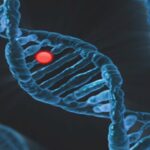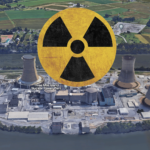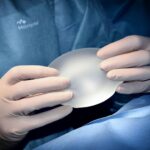Whether it’s a dollop on your morning cereal or a simple snack on the go, a daily dose of yoghurt could be the next go-to food for people with high blood pressure, according to new research from the University of South Australia. Conducted in partnership with the University of Maine, the study examined the associations […]
To Block The Carcinogens, Add A Touch Of Rosemary When Grilling Meats
Rosemary, a member of the mint family and a popular seasoning on its own, also has benefits as a cancer prevention agent. Apply it to hamburgers and it can break up the potentially cancer-causing compounds that can form when the meat is cooked. J. Scott Smith found out about rosemary’s strength against the compounds while […]
Cancer biologists find DNA-damaging toxins in common plant-based foods
In a laboratory study pairing food chemistry and cancer biology, scientists at the Johns Hopkins Kimmel Cancer Center tested the potentially harmful effect of foods and flavorings on the DNA of cells. They found that liquid smoke flavoring, black and green teas and coffee activated the highest levels of a well-known, cancer-linked gene called p53. […]
Possible correlation shown between TMI nuclear accident and thyroid cancers
Penn State College of Medicine researchers have shown, for the first time, a possible correlation between the partial meltdown of the Three Mile Island Nuclear Generating Station and thyroid cancers in the counties surrounding the plant. Three Mile Island (TMI), located near Harrisburg, Pennsylvania, had a partial meltdown accident on March 28, 1979. During the […]
Boiling Broccoli Ruins Its Anti-cancer Properties
Researchers at the University of Warwick have found that the standard British cooking habit of boiling vegetables severely damages the anticancer properties of many Brassica vegetables such as broccoli, Brussel sprouts, cauliflower and green cabbage. Past studies have shown that consumption of Brassica vegetables decreases the risk of cancer. This is because of the high […]
Ultra-processed foods may be linked to increased risk of cancer
Higher consumption of ultra-processed foods may be linked to an increased risk of developing and dying from cancer, an Imperial College London-led observational study suggests. Researchers from Imperial’s School of Public Health have produced the most comprehensive assessment to date of the association between ultra-processed foods and the risk of developing cancers. Ultra-processed foods are […]
In cells, UV-emitting nail polish dryers damage DNA and cause mutations
The ultraviolet nail polish drying devices used to cure gel manicures may pose more of a public health concern than previously thought. Researchers at the University of California San Diego studied these ultraviolet (UV) light emitting devices, and found that their use leads to cell death and cancer-causing mutations in human cells. The devices are […]
Omega-3 Kills Cancer Cells
Docosahexanoic acid (DHA), an omega-3 fatty acid found in fish oils, has been shown to reduce the size of tumours and enhance the positive effects of the chemotherapy drug cisplatin, while limiting its harmful side effects. The rat experiments provide some support for the plethora of health benefits often ascribed to omega-3 acids. Professor A. […]
F.D.A. Warns Breast Implants May Be Linked to Additional Cancers
The U.S. Food and Drug Administration (FDA) is informing the public about reports of cancers, including squamous cell carcinoma (SCC) and various lymphomas, in the scar tissue (capsule) that forms around breast implants. The various lymphomas reported are not the same as the lymphomas described in previous FDA Communications as Breast Implant-Associated Anaplastic Large Cell […]
New study links ultra-processed foods and colorectal cancer in men
For many Americans, the convenience of pre-cooked and instant meals may make it easy to overlook the less-than-ideal nutritional information, but a team led by researchers at Tufts University and Harvard University hope that will change after recently discovering a link between the high consumption of ultra-processed foods and an increased risk of colorectal cancer. […]









